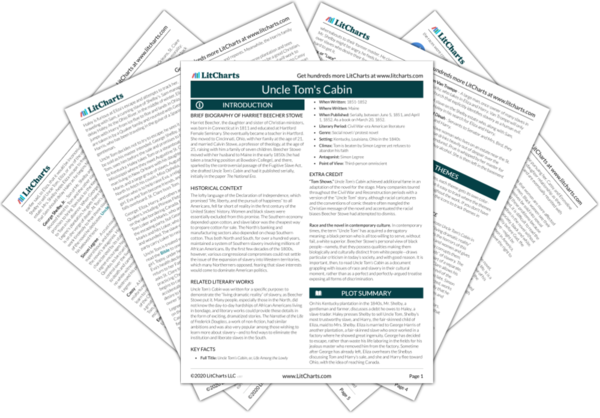Augustine St. Clare Quotes in Uncle Tom's Cabin
Chapter 14 Quotes
And you shall have good times . . . . Papa is very good to everybody, only he always will laugh at them.
Chapter 19 Quotes
On this abstract question of slavery there can, as I think, be but one opinion. Planters, who have money to make by it—clergymen, who have planters to please—politicians, who want to rule by it—may warp and bend language . . . they can press nature and the Bible . . . into their service; but, after all, neither they nor the world believe in it one particle the more.

Augustine St. Clare Quotes in Uncle Tom's Cabin
Chapter 14 Quotes
And you shall have good times . . . . Papa is very good to everybody, only he always will laugh at them.
Chapter 19 Quotes
On this abstract question of slavery there can, as I think, be but one opinion. Planters, who have money to make by it—clergymen, who have planters to please—politicians, who want to rule by it—may warp and bend language . . . they can press nature and the Bible . . . into their service; but, after all, neither they nor the world believe in it one particle the more.











